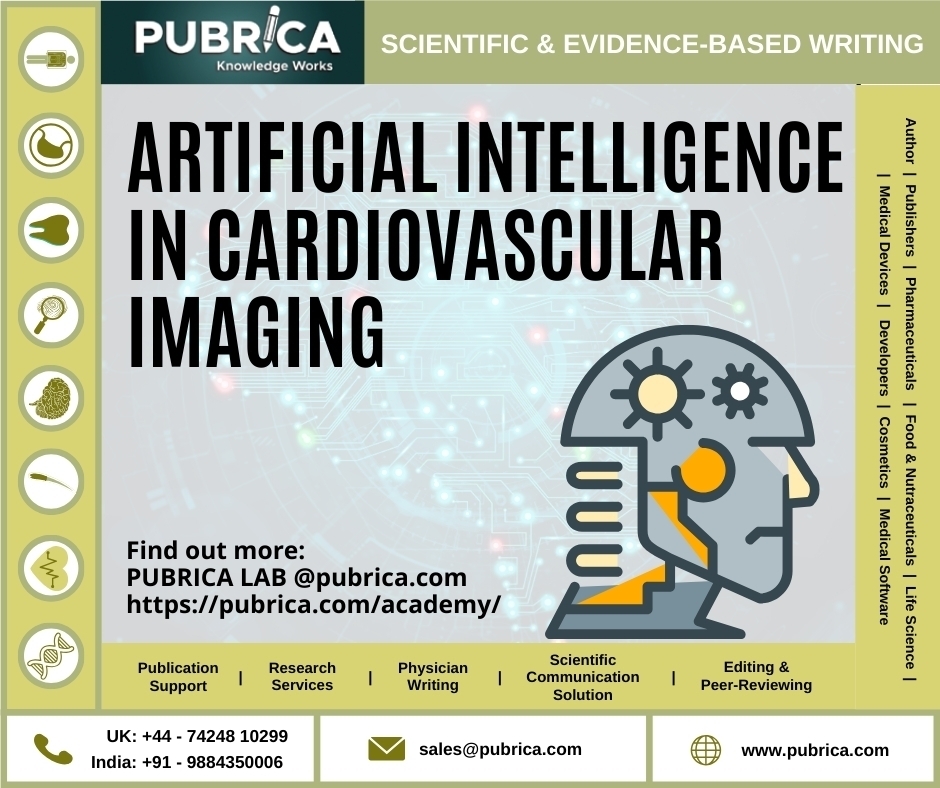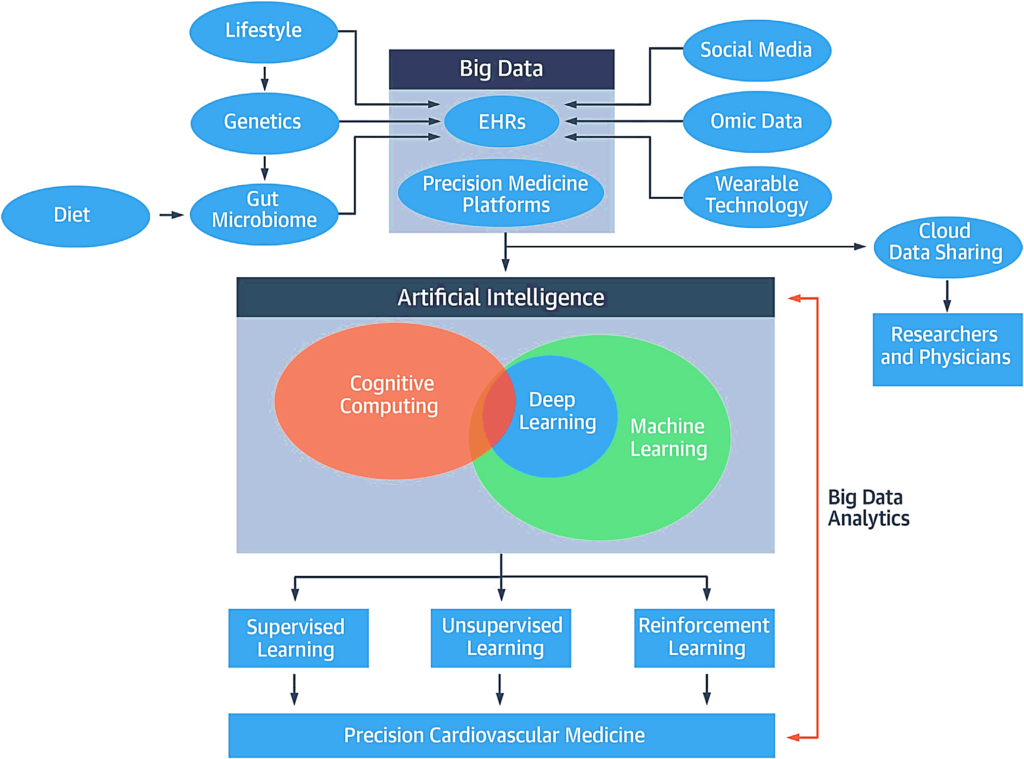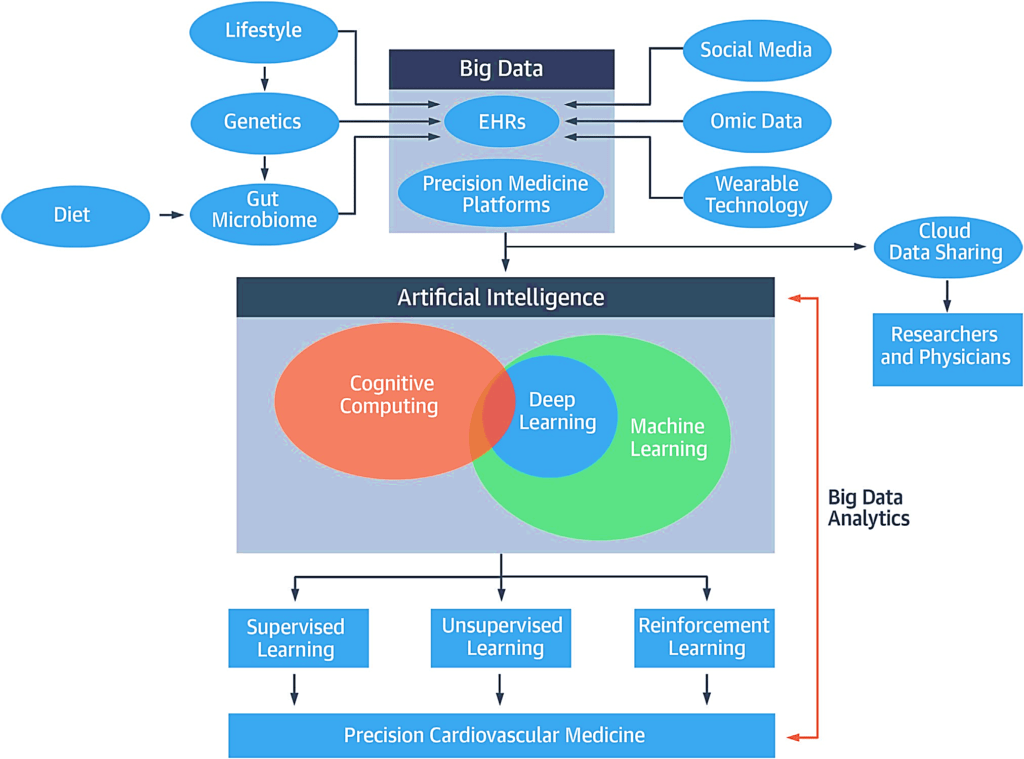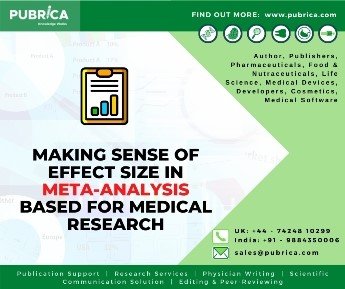
Artificial Intelligence In Cardiovascular Imaging
February 5, 2020
Clinical Applications Of Machine Learning In Radiology
February 11, 2020In Brief
- Artificial intelligence is the new found solution for all societal and technological problems.
- AI has the capacity to enhance the statistics and provide with data on the hidden information.
- The significance of AI in cardiovascular diseases are still in the early stages.
- AI appears to be promising in Cardiovascular disease screening, diagnosing and prediction of higher risks.

The 21st century is the century of inventions and artificial intelligence is the most important one among them all. The use of artificial intelligence in various fields like science and technology, education ,engineering and many others. Cardiovascular diseases are a complex phenomenon and each patient is different , the large available data from each resource is diverse and an analysis of the same is very difficult here is were artificial intelligence would play a vital role (Benjamins, Hendriks, Knuuti, Juarez-Orozco, & van der Harst, 2019).
In the big data era, AI techniques, such as machine learning, are revolutionizing the way of how the physicians administer clinical treatment and make clinical diagnosis, and have the potential to enhance the estimated CVD risk scores to a complete automate prediction.
Machine Learning
Machine learning has beeen categorized into 3 major learning types, which are unsupervised; supervised; and reinforcement (Krittanawong, Zhang, Wang, Aydar, & Kitai, 2017). Supervised learning, algorithms usually use sets of data labeled by humans in order to predict the known and thus the desired outcome. Unsupervised learning is to genotypes, identify the novel disease mechanisms, or phenotypes from unknown patterns present in the data.
Deep Learning
Deep learning is also similar to the operations of the human brain which uses the different layers of the artificial neuronal networks that could however generate automated predictions from the input. Deep learning has proven to be good, even better than the other machine-learning techniques, such as SVM, because deep learning could be using multiple layers as well for the transformations, when compared with the all the 2 layers used by the SVM.

Cognitive Computing
Cognitive computing can involve all the self-learning systems such as machine learning , process of recognizing the various patterns and the natural language processing to mimic the operation of human thought processes. In the terms of cognitive computing, a device is given training by deep-learning algorithms or machine-learning .Cognitive computing aims at creating an automated computerized models that can solve problems without human assistance. IBM Watson, is a well-known example of cognitive computing, continuously learns from the sets of data and can also predict the outcome using the various and multiple algorithms and that to more accurately than the humans
Conclusion
The analysis of the big data and the implementation of the deep learning have a great potential for detecting and diagnosing novel phenotypes and genotypes in heterogeneous CV diseases, such as familial AF, white-coat hypertension, pulmonary hypertension,HFpEF , Brugada syndrome, HTN, and metabolic syndrome. The development of precision medicine and AI application platforms will enhance precision CV medicine. The future it may become a reality that, cognitive computers, such as IBM Watson, will not just be a standard in health care facilities and assist physicians with their decision making and prediction of patient outcomes.
Many technology companies, such as Apple, Google, and IBM are already investing heavily in health care analytics in order to facilitate precision medicine. AI can and never will never replace physicians, however it is important that physicians should know to use AI in the right manner and to generate their diagnosis , process big data analytics, and thus personliaze AI applications in the current clinical practice in order to bring on the era of the precision CV medicine. However, ignoring the challenges of the AI platform may overshadow the impact of AI on CV medicine. Machine learning, Deep learning, and cognitive computing all three are indeed promising and can much potentially change the way medicine is practiced, however physicians need to be prepared for the booming era of AI .
Limitations
AI techniques might be utilized to take care of more mind boggling issues than customary insights, however the utilization of these strategies is appropriately increasingly perplexing. Other than a fundamental comprehension of the procedures, it requires adequate programming abilities to set up a model, and the information to decipher yield from demonstrative instruments to assess model execution and prevent model overfitting. A significant evaluation that is discovering its way along the utilization of AI in clinical research issues is the estimation of an issue’s multifaceted nature. Despite the fact that the facts confirm that ML can perform better that customary insights on complex information, it is similarly right to perceive that conventional straight models are powerful and may get the job done for some investigations. The recognizable proof of datasets and goals that can profit by AI execution is a developing need in current diagnostic work processes.
Another relative confinement in ML-based AI is that best-performing models are constantly modified and improved, and the present cutting edge designs may get out of date inside years or even months Full AI extension is right now constrained by information openness and structure. Not so distant future usage of AI will give clinicians analytic instruments, clinical choice frameworks and enormously upgraded work processes in electronic wellbeing records, diminishing expenses in human services, improving the degree of patient consideration and empowering specialists to concentrate more on their genuine duty, treating patients.
Future scopes
In vast areas of interest,AI has a great potential were it can be used for the support tools clinically , AI is already performing on a par or even much better than human experts. Implementations in the field of imaging and ECG systems could be expected in hospitals very shortly, improving the reproducibility and the overall accuracy of measurements, the diagnoses and thus the treatment decisions. ML models that use imaging or ECG data inorder to predict coronary heart disease could help prevention of the unnecessary cardiac catheterisations and thus admissions for the acute coronary syndrome. Implementation of the AI tools to detect arrhythmias in a better manner and more subtle ECG abnormalities could facilitate the better risk stratification and the remote patient monitoring using the handheld smartphone apps .
Utilization of prescient models for treatment reaction will take into account patient specific treatment. Simulated intelligence innovation has just been coordinated in patient electronic record frameworks, giving alternatives to improving the work process, and giving early admonition frameworks to continuous assessment to distinguish patients at a high risk of encountering diseases. Clinical ML-based instruments are by and large broadly researched in science and at times are now coordinated in electronic patient well being record frameworks. As of now observed on cell phones and in online mail frameworks, usage of word prediction tools and speech recognition and in electronic health record systems will reduce the time that the doctors spend on administrative tasks, that resulting in more effective time to address the treatment of all the patients.
References:
- Benjamins, J. W., Hendriks, T., Knuuti, J., Juarez-Orozco, L. E., & van der Harst, P. (2019). A primer in artificial intelligence in cardiovascular medicine. Netherlands Heart Journal, 27(9), 392–402. https://doi.org/10.1007/s12471-019-1286-6
- Krittanawong, C., Zhang, H., Wang, Z., Aydar, M., & Kitai, T. (2017). Artificial Intelligence in Precision Cardiovascular Medicine. Journal of the American College of Cardiology, 69(21), 2657–2664. https://doi.org/10.1016/j.jacc.2017.03.571



